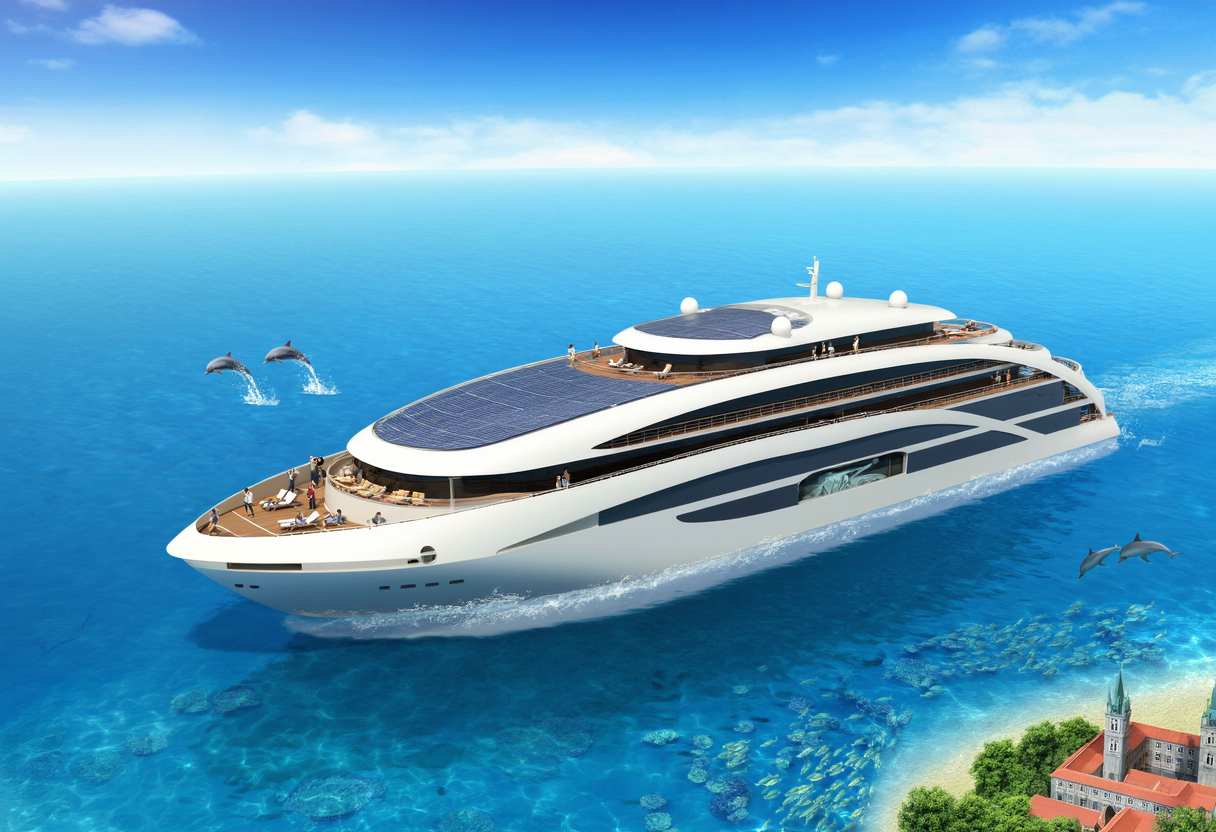The Future of Cruise Tourism: Trends and Insights for Travelers
As the cruise tourism industry evolves, understanding emerging trends becomes essential for travelers. This exploration dives into innovative technologies, eco-friendly practices, and the cultural dynamics that shape the future of cruise experiences. Embrace the journey ahead with insights into what the next generation of cruise tourism entails.
The Evolution of Cruise Tourism Trends
Cruise tourism is continually evolving, influenced by changing consumer preferences and technological advancements. The industry is witnessing a significant shift towards more sustainable practices that resonate with today's eco-conscious travelers. With each passing year, cruise lines are enhancing their offerings by incorporating green technologies and practices. Innovations like advanced waste management systems and energy-efficient vessels are critical for reducing the ecological footprint of cruise tourism. Additionally, as travelers seek more immersive experiences, the demand for unique, themed voyages is on the rise, encouraging cruise companies to expand their itineraries and enrich their onboard offerings.
Technological Innovations and Cruise Tourism
Technology plays a crucial role in revolutionizing the cruise tourism experience. From mobile applications that enhance passenger communication to virtual reality tours, the ways travelers engage with cruise lines are evolving. Onboard connectivity has also improved significantly, allowing passengers to stay connected while at sea. Furthermore, advanced booking systems offer customers more flexibility, enabling them to customize their journeys in real-time. These innovations not only streamline logistics but also enhance the overall enjoyment and convenience of cruise tourism, making it more appealing to a tech-savvy audience.
Environmental Responsibility in Cruise Tourism
As concerns about environmental degradation escalate, cruise tourism faces mounting pressure to adopt sustainable practices. Several cruise lines are now committed to mitigating their environmental impact, incorporating initiatives such as reducing single-use plastics and enhancing energy efficiency. Moreover, the industry is exploring the potential of alternative fuels, with some lines investing in liquefied natural gas (LNG) as a cleaner energy source. These sustainability efforts are vital not only for the preservation of ocean ecosystems but also for building a positive reputation in the eyes of consumers who prioritize responsible travel choices.
Cultural Sensitivity in Cruise Tourism
Cultural sensitivity is becoming increasingly important in cruise tourism. As the industry grows, so too does its responsibility to engage respectfully with the communities it visits. Ethically designed excursions that prioritize community input can help ensure that local cultures are respected and celebrated rather than exploited. Moreover, cruise lines are collaborating with local artisans and businesses to create authentic experiences, giving travelers a deeper understanding of their destinations. By fostering genuine connections between tourists and local communities, cruise tourism can help promote cultural appreciation and economic resilience.
The Role of Health and Safety in Cruise Tourism
The global pandemic has significantly impacted the cruise tourism industry, highlighting the need for enhanced health and safety protocols. To regain the trust of travelers, cruise lines are implementing rigorous sanitation guidelines, promoting social distancing onboard, and ensuring guests' health is a top priority. These practices will likely become permanent fixtures in the industry, as a new standard is set in response to traveler concerns. By prioritizing health and safety, cruise tourism can continue to thrive while ensuring passengers feel secure and comfortable during their journeys.
Conclusion: The Journey of Cruise Tourism Ahead
In conclusion, the future of cruise tourism is rich with opportunities shaped by technology, sustainability, and cultural sensitivity. As travelers adapt to new modes of exploration, the industry must remain flexible to meet changing demands. By embracing innovative practices while committing to responsible tourism, cruise lines can navigate the challenges ahead and unlock new avenues for growth. Ultimately, the evolving landscape of cruise tourism promises exciting adventures for discerning travelers worldwide.
